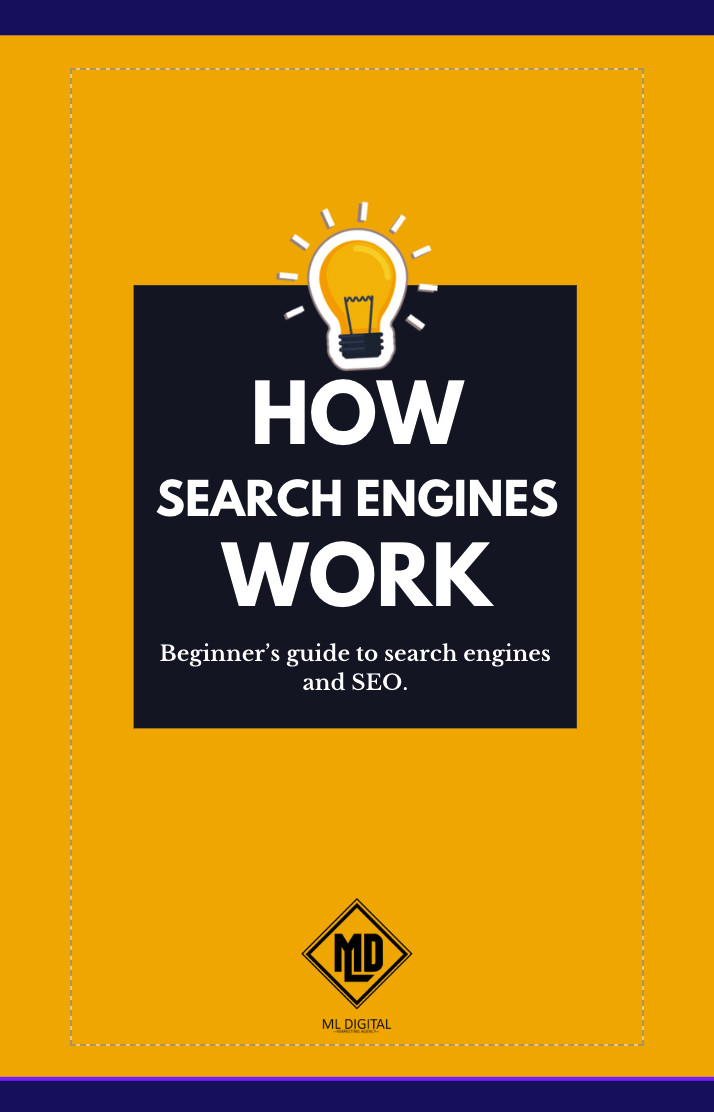The Hidden World of Search Engines
Every time you type a query into Google or Bing, an intricate process unfolds behind the scenes to deliver the most relevant results to your screen. Search engines are the digital librarians of the internet, tirelessly organizing and retrieving vast amounts of online information. They ensure that when you search for “best digital marketing tips” or “top SEO strategies,” you get answers in seconds.
But have you ever wondered how search engines gather and process this information?
For businesses and marketers, understanding this process is more than just a curiosity—it’s a game-changer. By knowing how search engines work, you can craft content that gets noticed, indexed, and ranked. This knowledge forms the foundation of effective SEO strategies, helping your website stand out in a crowded digital space. Let’s dive into the fascinating mechanics that power search engines and explore how they collect the data that shapes our online experiences.
The Basics of Search Engine Functionality
Search engines serve as sophisticated systems designed to navigate and organize the vast expanse of online information. They operate through a series of interconnected processes that ensure users receive the most accurate and relevant results for their queries. These processes are broadly categorized into three main stages:
- Crawling: The discovery of content across the web.
- Indexing: The organization and storage of the discovered content.
- Ranking: The presentation of results in order of relevance and quality based on the user’s search intent.
Crawling: Discovering Content of Search Engines
Crawling is the foundational step in how search engines gather information from the web. It involves the systematic discovery of new or updated web content to build a comprehensive database for indexing. The primary objective of crawling is to ensure search engines have access to the most current and relevant information across the internet.
Search engines employ specialized tools known as crawlers, spiders, or bots to perform this task. These automated programs navigate through websites, following links and gathering data about the content they encounter.
Key elements that guide and optimize the crawling process include:
- Website URLs: Crawlers begin by accessing a list of known URLs and then follow links within those pages to discover additional content.
- Sitemaps: XML files submitted by webmasters to provide a structured guide to all the pages on a website, helping crawlers identify and prioritize content.
- Robots.txt Files: Directives placed in a website’s root directory that specify which parts of the site should or should not be crawled.
Despite its efficiency, crawling is not without challenges. Common obstacles include:
- Blocked Pages: Pages restricted by robots.txt or other mechanisms that prevent crawlers from accessing content.
- Server Errors: Issues such as slow response times or downtime that hinder crawlers from retrieving information.
- Dynamic Content: Pages generated on-demand through JavaScript or other technologies that may not be readily accessible to standard crawlers.
Addressing these challenges is essential for maintaining a website’s visibility in search engines, underscoring the importance of robust technical SEO practices.
Indexing: Organizing Information of Search Engines
Indexing is the second critical step in the search engine workflow, where the data collected during crawling is processed, categorized, and stored in a structured database. This process enables search engines to efficiently retrieve and present relevant results in response to user queries.
During indexing, search engines analyze the content of web pages to assess its relevance, quality, and usability. The information is then categorized and added to the search engine’s index—a massive repository that acts as the backbone for delivering search results.
Several factors influence whether a page is successfully indexed:
- Content Quality and Relevance: Search engines prioritize original, high-quality content that aligns with user intent. Pages with thin or duplicate content are often excluded.
- Use of Structured Data: Implementing schema markup and other structured data formats helps search engines better understand the context and purpose of the content, enhancing visibility in search results.
- Mobile-Friendliness: With the shift to mobile-first indexing, websites that are optimized for mobile devices are more likely to be indexed effectively.
- Website Speed: Fast-loading pages provide a better user experience and improve a site’s chances of being indexed.
Maintaining an up-to-date and well-structured sitemap is also essential. Sitemaps serve as a roadmap for search engine crawlers, helping them identify and prioritize the most important pages on a website.
However, certain situations can prevent pages from being indexed, including:
- Duplicate Content: Pages with content identical to or very similar to others on the web may be de-prioritized or excluded.
- Noindex Tags: These tags explicitly instruct search engines to exclude specific pages from their index.
By addressing these factors and ensuring a site adheres to best practices, webmasters can optimize their content for indexing and improve its discoverability in search results.
Ranking: Delivering Relevant Results
The ultimate goal of a search engine is to deliver the most relevant and valuable results to users. Once web pages have been crawled and indexed, the process of ranking determines the order in which these results appear for a given query. Ranking is guided by complex algorithms that evaluate numerous factors to ensure the most appropriate content is presented at the top of the results page.
Understanding Ranking Algorithms
Search engine algorithms are sophisticated formulas designed to assess the relevance and quality of indexed pages. These algorithms analyze various signals to match content with user intent, ensuring that search results are both accurate and helpful. Regular updates to these algorithms, such as Google’s Core Updates, refine this process by incorporating new ranking factors and addressing evolving user behaviors.
Key Factors Influencing Ranking
Several elements contribute to how a page ranks in search results:
- Relevance to the Search Query: Pages that closely align with the user’s search terms and intent are prioritized. Relevance is determined by analyzing the content’s focus, keywords, and overall alignment with the query.
- Keyword Usage and Placement: Strategic placement of keywords in critical areas, such as titles, headings, and meta descriptions, signals the page’s relevance to the search engine.
- Backlinks and Domain Authority: High-quality backlinks from reputable sources boost a page’s authority and trustworthiness, which positively impacts its ranking.
- User Experience Signals: Metrics like click-through rate (CTR), dwell time, and bounce rate provide insights into how users interact with a page. Engaging, user-friendly content is rewarded with higher rankings.
The Dynamic Nature of Ranking
Search engine ranking is not static. Algorithms are continuously updated to address emerging trends, enhance user satisfaction, and combat manipulation tactics. For example, Google’s Core Updates frequently introduce changes that prioritize content quality, relevance, and expertise.
To stay competitive, businesses and marketers must remain vigilant, adapting their strategies to align with the latest algorithmic changes. By focusing on relevance, authority, and user experience, it is possible to achieve and maintain strong rankings in an ever-evolving digital landscape.
External Data Sources: Powering Smarter Search Engines
Search engines rely on external data to refine and enhance search results, providing greater accuracy and adaptability to user needs. This external layer of insights improves their understanding of user intent and online trends.
Key External Data Sources
- User Behavior and Search Patterns: Search engines analyze queries, clicks, and engagement metrics to predict intent and improve relevance.
- Public Databases and APIs: Trusted sources, such as weather or financial data, allow search engines to deliver accurate, real-time information.
- Social Signals: While not direct ranking factors, likes, shares, and mentions highlight popular content, influencing search priorities.
- Artificial Intelligence: Tools like Google’s RankBrain use machine learning to interpret complex queries and deliver highly relevant results.
By integrating these data sources, search engines create smarter, more dynamic search experiences, making it crucial for businesses to align content with these influences.
Challenges in Data Acquisition
Despite advanced systems, search engines face hurdles in gathering accurate information:
- Spammy or Low-Quality Content: Manipulative practices and shallow content hinder the delivery of meaningful results.
- Content Behind Paywalls: Restricted access to premium content creates gaps in search engine data.
- Regional Restrictions and Censorship: Legal and political constraints limit access to certain websites, impacting information availability.
How Search Engines Address Challenges
- Filtering Systems: Algorithms exclude spam and ensure quality content ranks higher.
- Penalties for Violations: Black-hat SEO practices result in demotion or removal from search results.
- Collaborations with Publishers: Limited access to paywalled content via previews balances user needs and content protection.
- Localized Policies: Indexing complies with regional laws while striving for comprehensive results.
By overcoming these obstacles, search engines ensure users receive accurate, high-quality information, helping businesses optimize their strategies in an ever-evolving digital landscape.
Implications for SEO and Digital Marketing
Understanding how search engines acquire, process, and rank information is crucial for businesses aiming to enhance their online presence. By aligning websites with search engine processes, marketers can maximize visibility, improve user engagement, and achieve higher rankings in search results.
Best Practices to Ensure Visibility
- Regular Updates to Content
Search engines prioritize fresh, relevant, and high-quality content. Regularly updating your website with new articles, blFog posts, or optimized landing pages signals that your site remains active and valuable to users. - Optimized Use of Keywords and Metadata
Effective keyword research and strategic placement in titles, headings, and metadata enhance a page’s relevance to user queries. Compelling meta descriptions can also improve click-through rates, signaling value to search engines. - Fixing Technical SEO Issues
Addressing technical issues such as crawl errors, broken links, and poor site architecture ensures that search engines can efficiently crawl and index your website. A clean, functional website structure is fundamental for strong search performance. - Building High-Quality Backlinks
Backlinks from reputable and authoritative sources boost your site’s credibility in the eyes of search engines. Focusing on ethical link-building practices, such as earning links through valuable content, can significantly enhance your domain authority.
Enhancing Content Strategy Through Search Engine Insights
By understanding the behavior and priorities of search engines, marketers can craft content strategies that meet both user needs and algorithmic expectations. This includes:
- Aligning content with trending search queries and user intent.
- Incorporating structured data to improve content visibility in search results (e.g., rich snippets).
- Adapting strategies to leverage emerging trends, such as voice search and mobile-first indexing.
Incorporating these practices ensures that your website not only meets the technical requirements of search engines but also delivers a seamless and engaging experience for users. This dual focus is essential for long-term success in SEO and digital marketing.
The Future of Search Engine Data Gathering
As technology advances, search engines are adopting new methods to gather and process data, reshaping opportunities and challenges for businesses and marketers. Staying informed about these changes is key to maintaining a competitive edge in SEO.
Trends Shaping the Future of Data Gathering
- Increased Reliance on AI and Machine Learning
AI-driven tools like Google’s Rank Brain and BERT enable search engines to better interpret user intent and nuanced language, delivering more personalized and relevant results. - Focus on Voice Search and NLP
The rise of smart assistants is transforming search behavior. Natural language processing (NLP) helps search engines handle conversational queries, making it vital for businesses to optimize for long-tail and question-based keywords. - Enhanced User Privacy
Privacy regulations and user preferences for data protection are reducing the availability of detailed data. Search engines now rely more on aggregated insights and adapt algorithms to prioritize user-friendly experiences.
Evolving SEO Strategies
- Align content with AI-driven algorithms using context-rich, high-quality material.
- Optimize for voice search with conversational tones and structured data.
- Prioritize user experience with fast-loading, mobile-friendly content.
- Diversify strategies for emerging platforms like voice assistants and industry-specific search engines.
By proactively adapting to these trends, businesses can harness the future of search engine data gathering to drive success in an evolving digital landscape.
Conclusion
Search engines play a pivotal role in discovering, organizing, and ranking the vast information available online. Understanding their processes—crawling, indexing, and ranking—is essential for crafting effective SEO strategies.
As search engine technology evolves, staying informed about advancements like AI, voice search, and privacy trends is critical for maintaining visibility and competitiveness. By leveraging this knowledge, businesses can optimize their content, enhance user experience, and stay ahead in the ever-changing digital landscape.
Take the Next Step Toward Better SEO
Is your website fully optimized for search engine visibility? Ensure your site is crawlable, indexable, and primed to rank higher in search results. Conduct a thorough website audit to identify potential issues and unlock your site’s full potential.
At ML Digital Marketing, we specialize in helping businesses optimize their websites for maximum performance. From technical SEO fixes to crafting strategies that align with the latest search engine advancements, we’re here to help you succeed.
Ready to elevate your online presence? Contact us today and let’s achieve your SEO goals together!
FAQs
1. How do search engines gather information?
Search engines use bots, also called crawlers or spiders, to discover and collect data from web pages. This data is then stored in an index and organized for ranking based on relevance and quality.
2. What are the main processes search engines follow?
Search engines operate through three key processes:
Crawling: Discovering web pages.
Indexing: Storing and organizing discovered content.
Ranking: Displaying the most relevant results for user queries.
3. Why is understanding search engine processes important for SEO?
By understanding how search engines crawl, index, and rank content, businesses can optimize their websites to improve visibility, attract more traffic, and enhance their digital presence.
4. What challenges do search engines face in data gathering?
Search engines often deal with spammy content, paywalled information, regional restrictions, and technical barriers like blocked pages or server errors.
5. How can I improve my website’s search engine performance?
Regularly update content, optimize keywords and metadata, fix technical SEO issues, and focus on user experience. Working with an expert SEO team like ML Digital Marketing can further refine your strategy.









